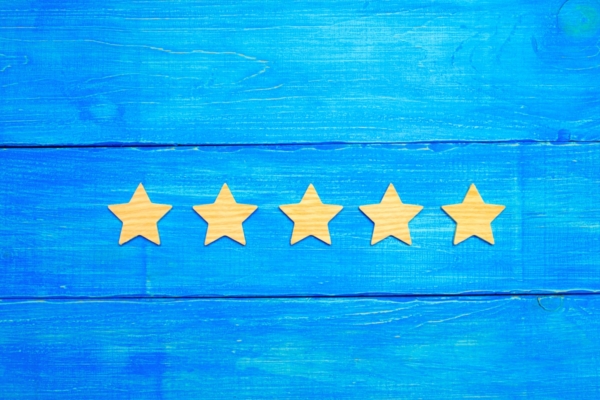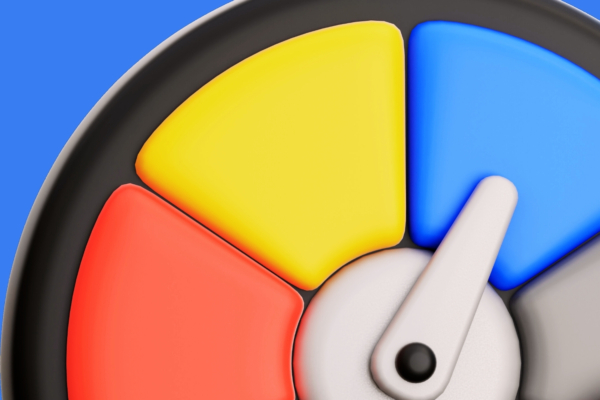
Here’s How to Use a Personal Line of Credit
A personal line of credit can be a handy financial tool in certain situations. To help shed some light on a complicated process, we asked Consumer Loan Officer Valerie Figueroa to share her insights on how to use a personal line of credit. Here’s what she had to say about this unique personal loan option and its advantages.
Personal Line of Credit Basics
A personal line of credit is a type of personal loan that allows you to borrow money as you need it. Like a credit card, this credit is open-ended or revolving.
Unlike a traditional loan, you won’t receive the money you borrow in one lump sum. You also won’t start paying interest on the entire amount right away. You’ll only pay based on the amount that you use, even if you don’t utilize the full loan. And as opposed to home equity lines of credit, you don’t need equity in your home to take out a personal line of credit.
How to Use a Personal Line of Credit to Your Advantage
When it comes to reasons people take out a personal line of credit, there are many scenarios in which they are helpful. “Unexpected expenses or overdraft protection are the most common requests,” Figueroa says. Each of these present opportunities where a line of credit can come in handy.
Overdraft Protection
Overdrawing your checking account is never a fun experience. It can lead to bounced checks, missed payments, and having your debit card denied at stores. On top of all of that, you might be charged expensive fees by your bank.
“Unlike a credit card, personal line of credit limits and rates are fixed. But they still give you the flexibility to use when needed.”
One of the most popular ways to use a personal line of credit is overdraft protection. “Many members take advantage of this option,” Figueroa explains. “We can set this up automatically when the personal line of credit is opened.”
With this service, instead of letting your account dip into the negative if you overcharge your checking account, the amount of money owed will be borrowed from your credit line. “This gives members a sense of security when needed and helps members save in potential overdraft fees with us and other institutions,” Figueroa says.
While you will be charged interest on the amount that comes out of the line of credit, it is often much cheaper than racking up expensive overdraft fees. It’ll also ensure that you can pay bills on time and that your debit card transactions will be approved when you need it most.
This type of setup is especially helpful for folks with fluctuating incomes, such as freelancers. If your business is sluggish for a month, this type of credit will ensure that you have the resources you need. You can then pay off the balance when business picks back up.
Cash Advances
Similarly, a line of credit can give you a cash advance if you’re needing money in hand before your next paycheck. “Personal lines of credit are useful for cash advances without getting charged interest and annual fees as you would with a credit card,” Figueroa says. Borrow the money you need by transferring it into your checking account, and pay it back – plus any interest you accrue – once you have the funds.
This usage is an excellent alternative to payday loans, which are often predatory and can leave thousands in debt.
Unexpected Expenses
Having a line of credit open can help you pay for any unexpected expenses that may arise. Unforeseen costs can be a burden, even if you have a small emergency fund set aside.
Typical unanticipated costs that a line of credit can help pay for include:
- Doctors’ bills
- Car repairs
- Pet emergencies
- Major home repairs
- Unplanned travel
Having a personal line of credit provides you with some much-needed breathing room. It offers an additional source of money waiting for you should you need it.
Just remember that if you don’t use your line of credit within a certain amount of time, this may trigger your account’s closing. For example, at Amplify Credit Union, inactive personal lines of credit are closed after a year without use. So if you’re keeping that line open in case of emergency, make sure to use it now and again to keep it ready.
Ongoing and Planned Expenses
A personal line of credit is also great for tackling a project with ongoing and planned expenses. The take-it-as-you-need-it nature of this type of loan is useful for things like wedding planning or home improvement expenses.
But before using a personal line of credit for home improvements, be sure to check out all of your options, such as a Home Improvement Loans. You may find a better deal on loans specifically designed for that purpose.
Building Credit
Using and paying off a loan is a great way to bolster your credit score. Lines of credit are no different. For best results, keep your debt limit low concerning your available credit limit and make all of your payments on time.
Remember, having a line of credit in and of itself won’t boost your credit score, but accessing your funds correctly will.
Using a Line of Credit for Business Purposes
If you’re self-employed, you probably recognize that some contracts will require you to invest money into equipment or vendors. A line of credit is a lucrative loan for businesses since you only pay interest on what you use. You can also borrow again and again without having to reapply for a loan.
However, taking out a personal line of credit for business expenses may not be your best money move.
“For the self-employed, we have a business line of credit that works similar to our personal line of credit,” Figueroa notes. Many business owners live by one important financial rule: don’t mix your individual finances with business finances. Keeping everything separate makes business bookkeeping easier and will save you a lot of headaches when it comes to tax season. It’ll also help protect your credit score from damage if something goes awry.
If you have questions about what type of loan is right for you and your business, reach out to a lender. Their job is to help you find the best loan at the lowest available rates.
Personal Line of Credit vs. Credit Cards
We’ve said that a personal line of credit works similarly to a credit card. But what makes them different, and what situations benefit the most from a personal line of credit?
Advantages of a Personal Line of Credit
There are numerous advantages that lines of credit have over credit cards.
“Unlike a credit card, personal line of credit limits and rates are fixed, but they still give you the flexibility to use when needed,” Figueroa says. This means that you’ll know what to expect when it comes to paying off your balance. “Personal lines of credit rates are typically lower than credit cards,” she adds.
Borrowing money on a credit card is more expensive if you can’t repay the entire amount in a single sitting. Even features like cash advances are cheaper with a personal line of credit. Additionally, credit limits are usually higher with a line of credit, giving you the capability to borrow more at once.
This isn’t to say that a line of credit doesn’t have some of the same dangers as a credit card. It’s important that the borrower use their line of credit responsibly. After all, it is still a form of debt, and it accrues interest. Making sure you have the means to pay off anything you borrow is critical to know before taking any loan.
Finally, do your research on the repayment plans. It may seem counterintuitive, but some credit unions and banks will charge you a penalty for repaying your loan amount early.
Where Credit Cards Are the Better Option
There are some instances where having a credit card makes more sense than taking out a line of credit. If you’re looking to use the money for everyday expenses like groceries, gas, and shopping that you can pay off at the end of the month, a credit card is likely your best bet.
Conclusion
A personal line of credit can be used for many purposes, ranging from home improvements to overdraft protection to unexpected expenses. This revolving loan offers a higher degree of flexibility than a traditional fixed loan. But like other loans are credit cards, it’s ultimately up to the borrower to use a line of credit responsibly.
Learn More About Personal Loans
Talk to an Amplify team member about your next personal line of credit.


